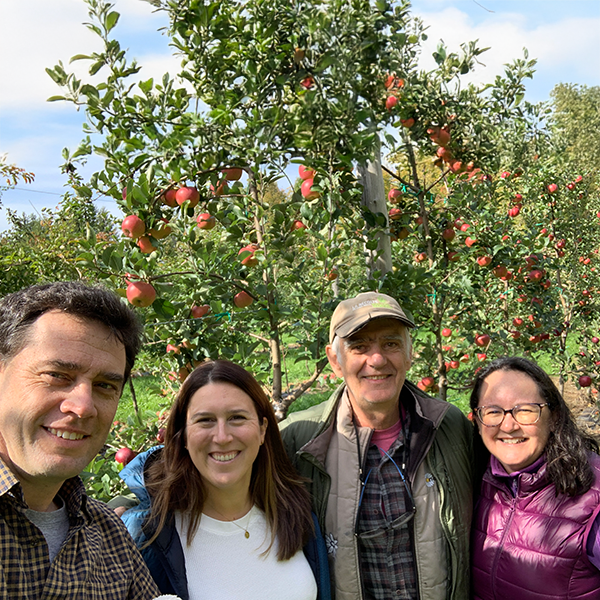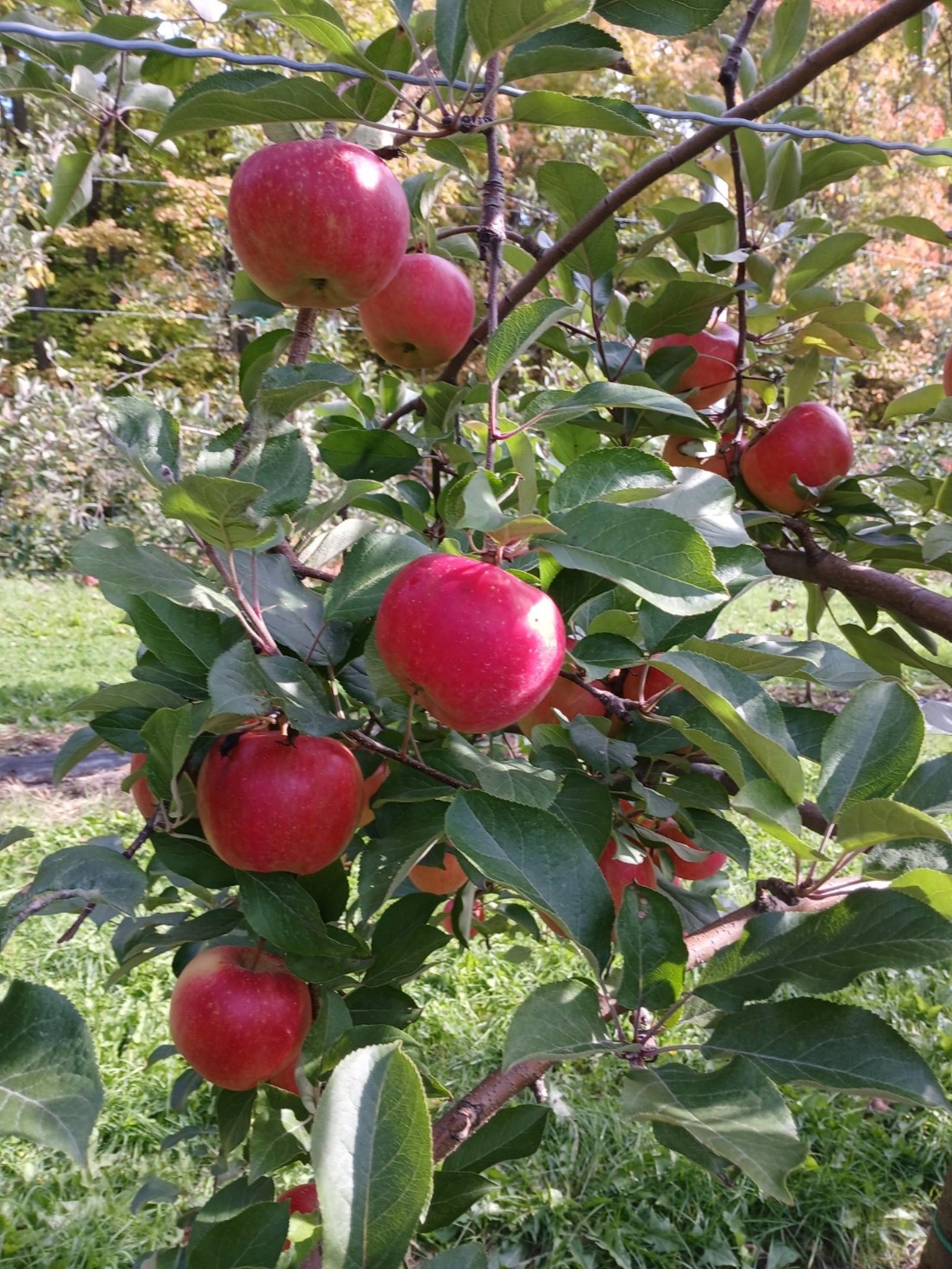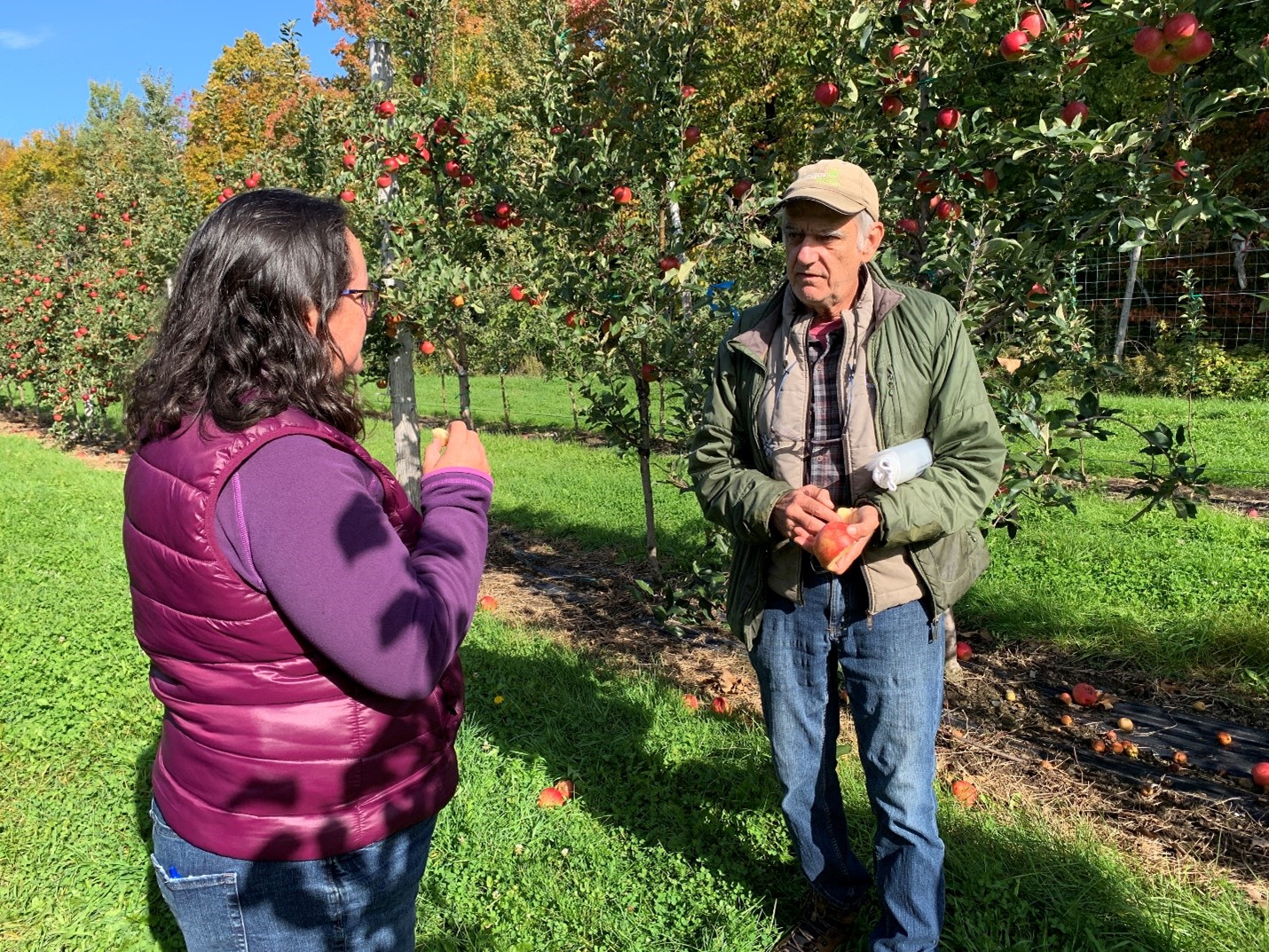
After 17 years of careful selection and development, the "Óiase" apple variety makes its debut in Quebec's orchards, embodying patience, precision, and community spirit. Developed by apple breeder Roland Joannin and La Pomme de Demain—a cooperative of over 80 members dedicated to advancing new apple varieties—the long wait has proven to be well worth it. As a not-for-profit organization, La Pomme de Demain is committed to the collective advancement of apple varieties, ensuring that the benefits are shared within its cooperative rather than driven by profit motives. Roland's journey is a story of passion, patience, and a deep respect for agriculture and the local region of Saint-Joseph-du-Lac and its surrounding communities.
Originally from the Monts du Lyonnais region, in France, Roland's early career involved working with stone fruit including cherries, peaches, and nectarines. However, it wasn't until he moved to Quebec in 1982 that he discovered his true calling for apple breeding. Over the years, Roland and his colleagues have evaluated over 8,000 seedlings, of which three selected varieties ("Rosinette", "Passionata" and now "Óiase") have successfully obtained plant breeders' rights protection.
To describe the "Óiase" variety, Roland touches on several breeding goals. The first is its taste. The apples are juicy and crispy with fruity aromas reminiscent of plum. Disease tolerance, vigorous growth and cold hardiness were also important selection criteria as well. Finally, the extended harvest window, with fruit picked over the entirety of the month of October that maintain their exceptional taste all contribute to making this variety a highly desirable option for apple growers.
The Plant Breeders' Rights Office (PBRO) of the Canadian Food Inspection Agency (CFIA) played a crucial role in granting intellectual property protection for the "Óiase" variety. This involved confirming that the new variety was distinct, uniform and stable, through a thorough review of the application information and examination of the comparative trials. Once these criteria were met, the PBRO granted exclusive rights to the La Pomme de Demain, allowing them to control the production and commercialization of the variety. Upon reflecting on working with the PBRO, Roland had only praise, saying "it has been nothing but a positive experience working with the PBRO." He continued "it felt more like a collaborative partnership, and I felt comfortable if I had uncertainty or doubts to contact the office and seek clarification. They always answered quickly with very detailed responses."
Seeking PBR protection is a voluntary process. For small-scale breeding initiatives like La Pomme de Demain, Roland emphasizes that protecting the "Óiase" variety safeguards this innovation and contributes to the region's agricultural heritage for up to 25 years. This protection ensures that the cooperative's financial investments can be recouped through royalty payments, which in turn support the continued breeding and development of new apple varieties.
What truly sets the"'Óiase" variety apart is its connection to the Mohawk community of Kanehsatà:ke (Kanesatake). Roland sought to name this new variety in Mohawk, the language of the Kanien'kéha-speaking people. The name "Óiase" (pronounced "O-Ya-ssais"), meaning "new apple", reflects the variety's origins near Kanehsatà:ke and was chosen in collaboration with the Mohawk Language Custodian Association (MLCA).
For Roland, this collaboration represents a bridge between two communities, the local farmers of the region and the Kanehsatà:ke Mohawk community. In recognition of this collaboration, a portion of the royalties collected on the sale of each "Óiase" tree, will be donated to the MLCA to sustain learning programs, immersion courses and partnerships with universities.
Although still new, the "Óiase" variety is gaining attention locally, with over 6,000 trees sold and planted in Quebec orchards, and the apples available at local stands. For those eager to try this new variety, the apple is available at select orchards, including Le Verger de la Montagne in Mont-Saint-Grégoire, where visitors can experience its flavor at the peak of the harvest season.

